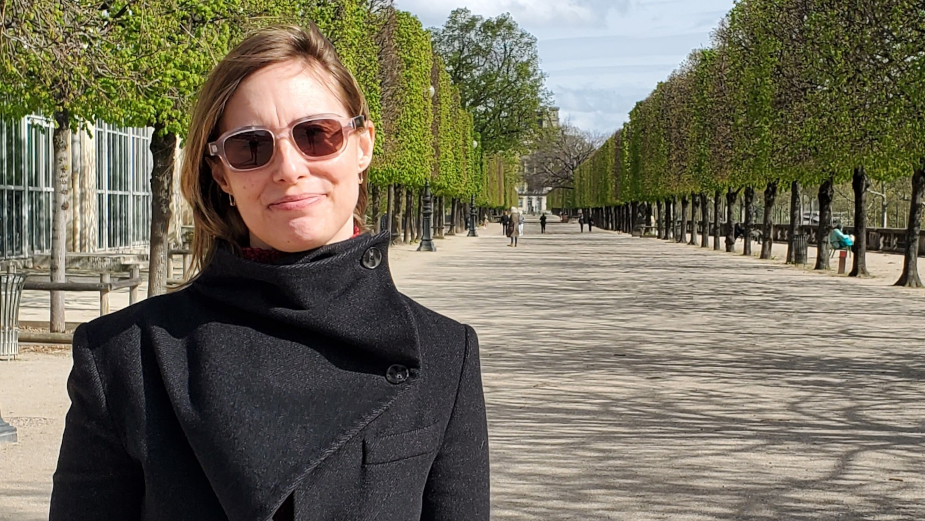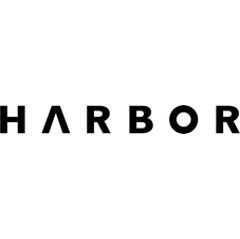
Bossing It: Setting the Tone of Direction with Elizabeth Niles

Elizabeth Niles is the executive producer of Picture Post at Harbor in New York. She has held leadership roles at prominent post-production companies including executive producer at Goldcrest Post NY, senior DI producer at Technicolor Postworks, and senior manager at Prime Focus Technologies. Prior to her post-production roles, Niles developed shows from concept to broadcast as a writer/producer, serving as Series Producer at Rainbow-Media and Producer at MSNBC.
Elizabeth’s extensive client list of filmmaking talent includes Steven Soderbergh, Ken Burns, David Chase, David Gordon Green, Thomas Bezucha, Alan Taylor, Ric Burns, and Barbara Kopple. She has supervised projects for networks and studios such as New Line/Warner Bros., Sony Pictures, Netflix, A24, Hulu, HBO, PBS, and Disney +.
Recent credits include Halloween Ends, Jerrod Carmichael: Rothaniel, The Lost Daughter, Painting with John for HBO, The Many Saints of Newark, and Ken Burns’ Muhammad Ali and Hemingway for PBS.
LBB> What was your first experience of leadership?
Elizabeth> When I was a PA at a television network, I was assigned an intern. I think no one had the bandwidth to find things for the intern to do so that became my responsibility. I tried to treat her with respect, teach her the little I knew, and assign her jobs that would be helpful to me and the team. When the intern left, she said, “please don’t change as you move up the ladder." She said she really appreciated that I didn’t talk down to her, boss her around, or ‘act like a boss’. I knew what she meant. I didn’t want to be authoritative, and I wanted her to know I appreciated her help.
LBB> How did you figure out what kind of leader you wanted to be – or what kind of leader you didn’t want to be? What experience or moment gave you your biggest lesson in leadership?
Elizabeth> That experience early on in my career with the intern had an impact on me. I think no matter where you are in the hierarchy, it’s important to realise you are part of a team and your attitude matters. When you’re in a leadership position, it is that much more important to set the tone and make sure everyone is rowing in the same direction to ensure success.
LBB> Did you know you always wanted to take on a leadership role? If so how did you work towards it and if not, when did you start realising that you had it in you?
Elizabeth> I always felt like I didn’t know enough to be in charge. I leaned away from being the person who owned the project, though I was always reliable and thorough. I enjoyed seeing people benefit from my work. There came a time when my boss was unexpectedly out for a prolonged period, and in filling in for her, I got the confidence to take on more responsibility and act decisively for the team.
LBB> When it comes to 'leadership' as a skill, how much do you think is a natural part of personality, how much can be taught and learned?
Elizabeth> I think I have tons to learn, so I sure hope it can be learned. And as with everything, there’s always room for improvement. You can’t be afraid to run with the ball, to make mistakes, and to take responsibility for those mistakes.
LBB> What are the aspects of leadership that you find most personally challenging? And how do you work through them?
Elizabeth> I find things beyond my control to be the most challenging. To get through those challenging circumstances, I try to be an honest broker and play the cards I am dealt to the best of my ability.
LBB> Have you ever felt like you've failed whilst in charge? How did you address the issue and what did you learn from it?
Elizabeth> I feel I have failed when people feel discounted or unappreciated. What we do is challenging and hard work and I do expect people to be all in. I think when you have a big team it is hard to check in with everyone as often as you’d like, but I have learned how important it is to express gratitude. It is important to show people how much you value them.
LBB> In terms of leadership and openness, what’s your approach there? Do you think it’s important to be transparent as possible in the service of being authentic? Or is there a value in being careful and considered?
Elizabeth> I think transparency and openness are very important in building a team. I don’t think everything needs to be or should be shared, but I do think that if you want to make change, you need to first brief the team on what you’d like to see happen and how you hope to get there. Then be open to hearing what hurdles the team thinks they’ll need to overcome. You are responsible for eliminating or minimising those hurdles as much as possible. I think it’s important to be honest, realistic, and have the team’s best interest at heart.
LBB> As you developed your leadership skills did you have a mentor, if so who were/are they and what have you learned? And on the flip side, do you mentor any aspiring leaders and how do you approach that relationship?
Elizabeth> I find mentorship in all the people I work with. Everyone has different strengths, and I find I learn from many of the people I work with no matter what their role is. In terms of how I mentor others, I try to be open and supportive and lead by example.
LBB> It's been a really challenging year - and that's an understatement. How do you cope with the responsibility of leading a team through such difficult waters?
Elizabeth> I am very lucky in that I work for a company with a very collaborative culture. Communication is key. We have many ways of touching base, so it’s about finding the right balance. We have regular meetings, but I try to keep them a productive space to discuss areas of concern and find ways to celebrate our talented team and their hard work.
LBB> This year has seen the industry confronted with its lack of action/progress on diversity and inclusion. As a leader how have you dealt with this?
Elizabeth> A diverse and equitable workplace is a huge priority. I am grateful to have been able to grow our talented team. This may sound inauthentic, but I like to hire the best person for the job. My priority is finding team players who have the skill set needed or whom I think can learn those skills. I just don’t want jerks or difficult people slowing us down, and as it happens, this has led to hiring a diverse group of talented people.
LBB> How important is your company culture to the success of your business? And how have you managed to keep it alive with staff working remotely in 2020?
Elizabeth> As I mentioned, I am very lucky in that I work for a company with a very cooperative culture, which has been a key factor in our team’s success. The fact that many people joined during the pandemic and have been working mostly remotely since has been a challenge. To maintain a sense of community, we plan team lunches and social opportunities (screenings, drinks, etc – attendance is not required) to just talk, and I think that has made a difference.
LBB> What are the most useful resources you’ve found to help you along your leadership journey?
Elizabeth> I have had the good fortune to work with wonderfully talented people in the industry with whom I can consult and discuss new challenges that arise. It is very important to me to build a team of people where there is mutual trust and respect –both within my company but also with our clients. I like to think of us as all on the same team and I think that best defines my leadership style.













